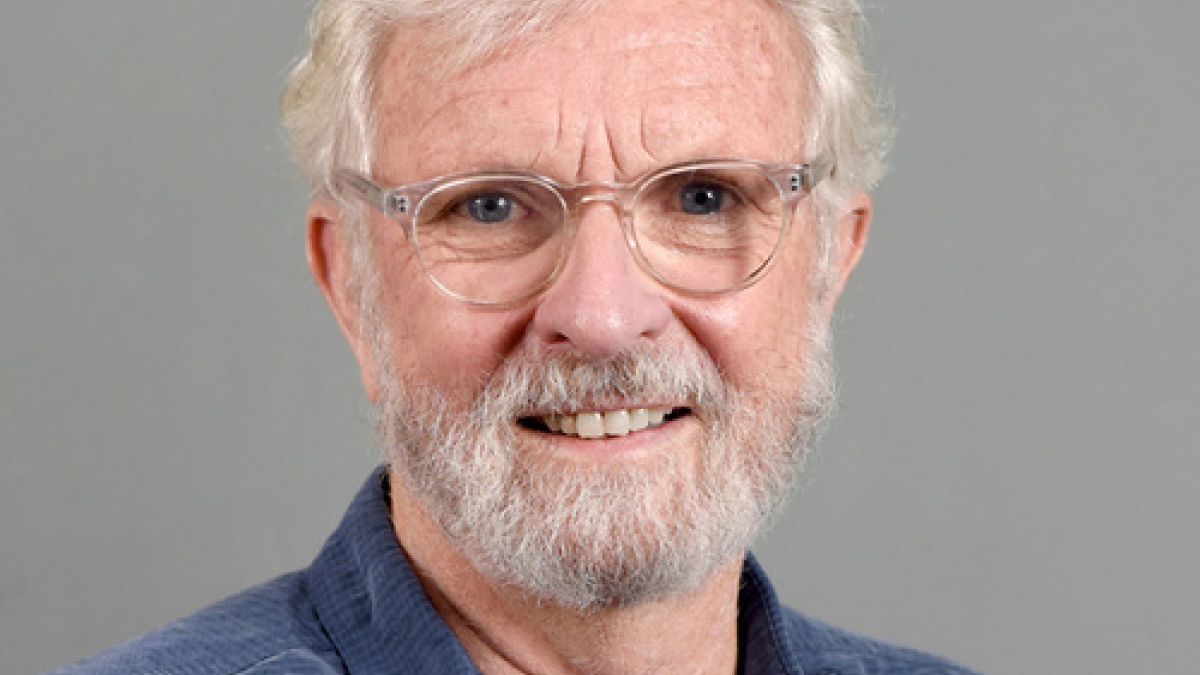ASU professor's new book: Discoveries on why humans stand out as a species

Arizona State University Professor Robert Boyd has published a new book, “A Different Kind of Animal,” and expands scientific possibilities through his research.
What makes humans special? It's a question mankind has puzzled over for centuries. According to anthropology pioneer Robert Boyd, there are a handful of ingredients that make up human uniqueness, setting us apart from all other living things and allowing our species to flourish.
In his newly published book, “A Different Kind of Animal,” the Arizona State University professor explains why humans have been so successful compared with other species. Yes, humans are smart, but there is so much more that makes us unique.
"Humans are outliers in the natural world, but why?” said Boyd. “What happened over the last 5 million years that allowed people to diverge from the common run of creatures, and become this rather odd and extremely ecologically successful species?”
Boyd’s book seeks to answer these questions and discusses the three key things that make humans distinctive from other vertebrates: cognition, culture and cooperation. Although these elements all are important, Boyd’s research focuses mainly on culture and cooperation — the idea that mankind is so successful because of our ability to learn and work with each other toward a common goal.
“What makes humans special is the fact that we are able to learn from each other,” said Boyd. “Human societies have this immense web of cooperation and division of labor behind everything and can operate in large numbers with unrelated individuals.”
For the past 45 years, Boyd and his colleagues have worked hard to blaze a trail connecting social culture to human evolution. Before his interest in anthropology, Boyd earned a Bachelor of Science in physics from the University of California, San Diego. After working in an oceanography lab and meeting scientists in different fields, he decided to earn his PhD in mathematical biology. During his time at graduate school, Boyd discovered his fascination with human cultural evolution.
“I became interested in the question of how social learning and culture has effected human evolution and the evolution of other cultural organisms,” said Boyd. “I was trained as a biologist, but if you want to study humans, you have to be in the anthropology department.”
It was this realization that drove Boyd to become a professor. After teaching at the University of California, Los Angeles for many years, Boyd found his way to ASU in the College of Liberal Arts and Sciences.
“ASU is a better place to be,” said Boyd. “There are so many opportunities to build programs, and being a professor is a great life. I get to work on what I love and with so many interesting people.”
Boyd and his fellow researchers have expanded the realm of human evolution studies. Previously, cultural evolution was not a topic that was discussed, but Boyd and his research set out to change that.
“Being one of the handful of people that was able to understand and make progress on the problem of incorporating social learning and cultural processes into Darwinian evolutionary ideas is something I am really proud of,” said Boyd. “It’s gone from beyond-the-frontier research to being pretty respectable.”
Boyd’s work has presented new central questions in the study of social learning and human evolution, and he hopes to continue that in the future.
“I feel quite confident that this work will influence the way social scientists think about things,” said Boyd. “The kinds of things my team is studying could potentially inform economists about why some societies grow, and why corruption is present in some places but not others.”
With so much progress already made, Boyd isn’t slowing down. Although he faces some challenges, such as having no lasting foraging societies to study, Boyd will continue down his current path in hopes to further his progress.
“This research has already had such a big impact on how evolution and biology approaches the human species,” said Boyd. “I’m pushing along in the same roads I’ve been pushing for a long time, because I think knowing how the world works is always a positive thing.”
More Science and technology

ASU-led space telescope is ready to fly
The Star Planet Activity Research CubeSat, or SPARCS, a small space telescope that will monitor the flares and sunspot activity…

ASU at the heart of the state's revitalized microelectronics industry
A stronger local economy, more reliable technology, and a future where our computers and devices do the impossible: that’s the…

Breakthrough copper alloy achieves unprecedented high-temperature performance
A team of researchers from Arizona State University, the U.S. Army Research Laboratory, Lehigh University and Louisiana State…

